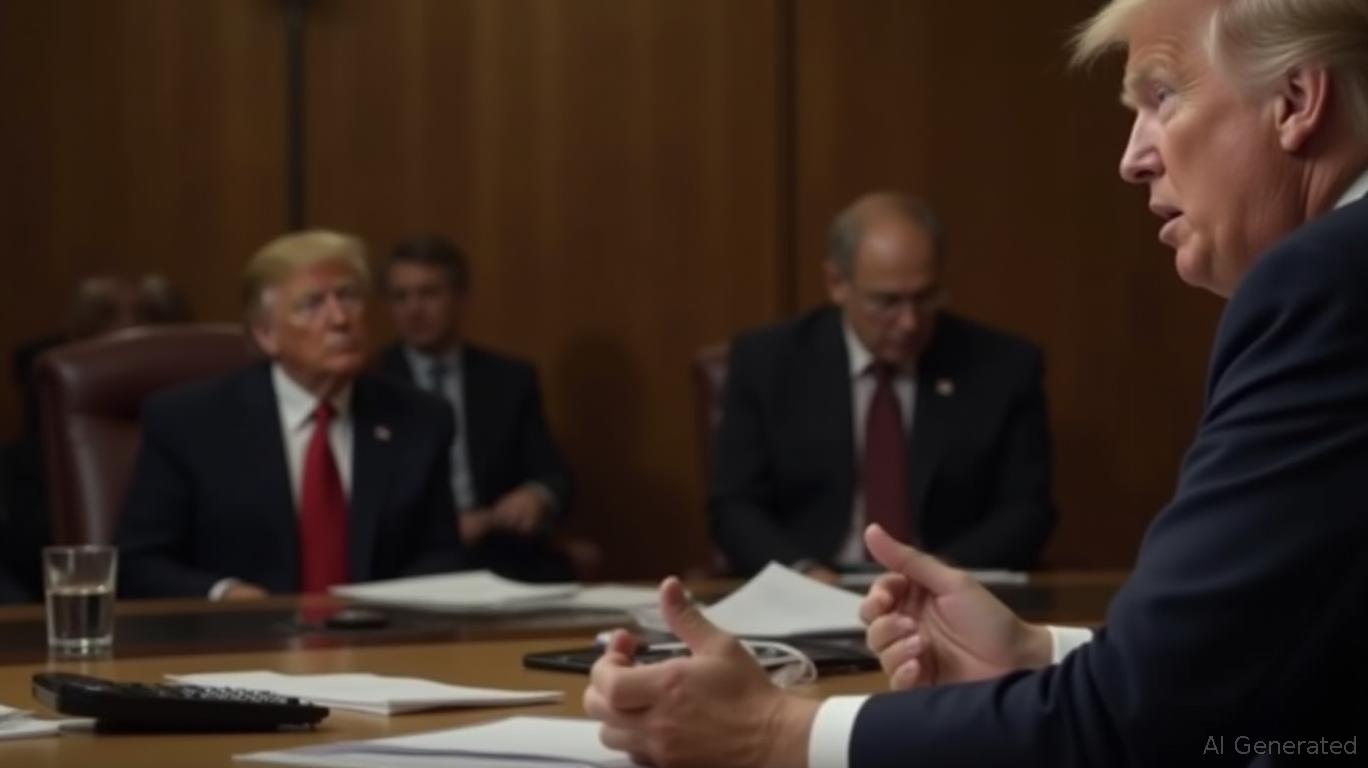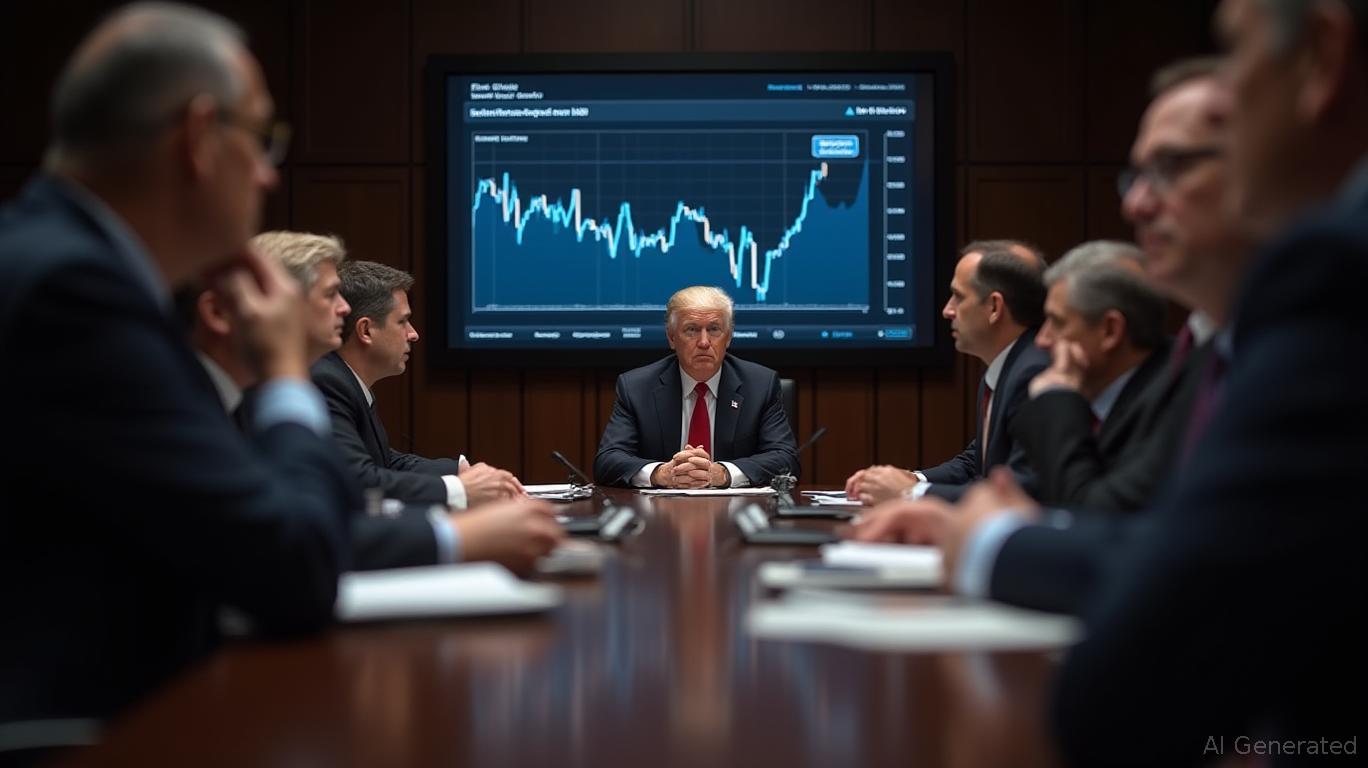Ethereum ETFs Face Second Consecutive Week Of Outflows While Bitcoin Attracts Institutional Money
Spot Ethereum exchange-traded funds recorded their second straight week of outflows as investor demand cooled. According to Cointelegraph, Ether products posted $243.9 million in net redemptions for the week ending Friday. This followed the previous week's $311 million outflow based on SoSoValue data.
Bitcoin ETFs showed renewed strength during the same period, recording $446 million in net inflows. On Friday alone, Bitcoin products added $90.6 million. BlackRock's ETHA ETF led Ethereum withdrawals with $100.99 million in outflows. Meanwhile, BlackRock's IBIT and Fidelity's FBTC gained $32.68 million and $57.92 million respectively.
Total assets under management for Ether-focused ETFs now stand at $26.39 billion. This represents approximately 5.55% of Ethereum's market cap. Bitcoin ETF assets reached $149.96 billion, accounting for 6.78% of Bitcoin's market cap.
Rotation Toward Bitcoin Reflects Safe Haven Preference
The diverging flows between Ethereum and Bitcoin ETFs reveal shifting institutional priorities. Vincent Liu, chief investment officer at Kronos Research, told Cointelegraph that current flows suggest a rotation into Bitcoin. Investors are doubling down on the digital gold narrative as global uncertainty persists.
Ethereum's outflows come after a period of strong inflows that began following the ETF launches earlier this year. Blockworks reported that Ethereum ETF momentum collapsed in September. Monthly inflows dropped from $3.9 billion in August to just $285 million in September. This represents one of the steepest reversals since ETH ETFs launched.
We recently reported that Bitcoin ETFs accumulated $3.24 billion in weekly inflows as the October rally began. That surge demonstrated renewed institutional appetite for Bitcoin exposure through regulated products. The current week's $446 million inflow maintains this pattern of steady Bitcoin demand.
Institutional investors appear to be waiting for new catalysts before re-entering Ethereum positions. Liu noted that Ethereum's ongoing ETF outflows reflect cooling demand and softer onchain activity. Bitcoin's appeal as a store of value during uncertain times continues to attract capital.
Institutional Asset Allocation Trends Reshape Crypto Markets
The ETF flow divergence reflects broader institutional strategy shifts in digital asset allocation. Bitcoin's established position as digital gold makes it the preferred choice during volatility. Traditional financial institutions increasingly view Bitcoin as a hedge against monetary debasement and economic instability.
Ethereum faces different dynamics despite its strong technology platform and smart contract capabilities. The network's transition to proof-of-stake and layer-two scaling solutions have not yet translated into sustained ETF demand. Institutional investors require clear narratives and regulatory frameworks before committing significant capital.
Rate cut expectations from the Federal Reserve have improved sentiment toward risk assets like Bitcoin. However, Ethereum has not benefited equally from this macro tailwind. Liu expects Bitcoin inflows to remain robust as traders position for potential monetary easing. Ethereum and other altcoins could regain momentum only if network activity increases or new catalysts emerge.
The ETF structure has fundamentally changed how institutions access cryptocurrency markets. These products provide regulated exposure without direct custody requirements. Bitcoin ETFs now generate between $5 billion and $10 billion in daily trading volume on active days. This institutional infrastructure continues to mature and attract traditional finance capital primarily into Bitcoin rather than alternative cryptocurrencies.
Disclaimer: The content of this article solely reflects the author's opinion and does not represent the platform in any capacity. This article is not intended to serve as a reference for making investment decisions.
You may also like
"Brazil and United States Seek Trade Agreement as World Turns Toward Protectionism"
- Brazil's Lula and Trump discussed a trade deal during their ASEAN summit meeting, with Lula claiming Trump "guaranteed" a resolution despite U.S. tariffs on Brazilian goods. - The U.S. imposed 50% tariffs in July over legal actions against Bolsonaro, which Lula called "mistaken," presenting a written defense during talks. - Lula highlighted Brazil's $410B trade surplus with the U.S. and urged Trump to leverage Brazil's regional influence, including Venezuela diplomacy. - Brazil resumed chicken exports to

Fed Balances Delicately as Trump Urges Rate Reductions While Inflation Concerns Persist
- FOMC to cut rates by 25 bps in October 2025, second cut this year, targeting 3.75%-4% range. - Cooling labor market and subdued inflation drive decision, with manufacturing/retail data to shape future adjustments. - Consumers see limited relief: mortgage rates near 6.34%, credit card rates at 20.03% remain largely unaffected. - Trump pressures Fed for aggressive cuts, but officials warn against inflation risks from tariffs and immigration policies. - Markets expect 1% rate cuts by 2026 end, with mortgage

XRP News Today: Indian Judiciary Acknowledges Cryptocurrency as Property, Establishing a Landmark for Investor Protections
- India's Madras High Court ruled crypto as property, blocking WazirX from redistributing a user's 3,532 XRP to offset hack losses. - The decision reinforces legal protections for digital assets, setting a precedent for investor rights and clearer regulatory frameworks. - By rejecting WazirX's "socialization of losses" plan, the court emphasized crypto custody distinctions and trust obligations for unaffected assets. - Experts highlight the ruling's impact on India's crypto ecosystem, aligning with global

Fed Lowers Interest Rates as Data Remain Unclear Due to Shutdown, While Focus Shifts to Tech AI Profits and Trade Agreement
- The U.S. Fed cuts rates by 25 bps for the second consecutive meeting, signaling potential policy easing amid a government shutdown and global trade tensions. - Big Tech earnings spotlight AI monetization, with Microsoft's Azure and Amazon's AWS under scrutiny as $420B AI spending by 2026 drives growth but risks margin pressures. - A preliminary U.S.-China trade deal delays Trump's 100% tariffs and resumes soybean purchases, marking de-escalation after months of escalating tensions. - Fed's rate cut coinc
